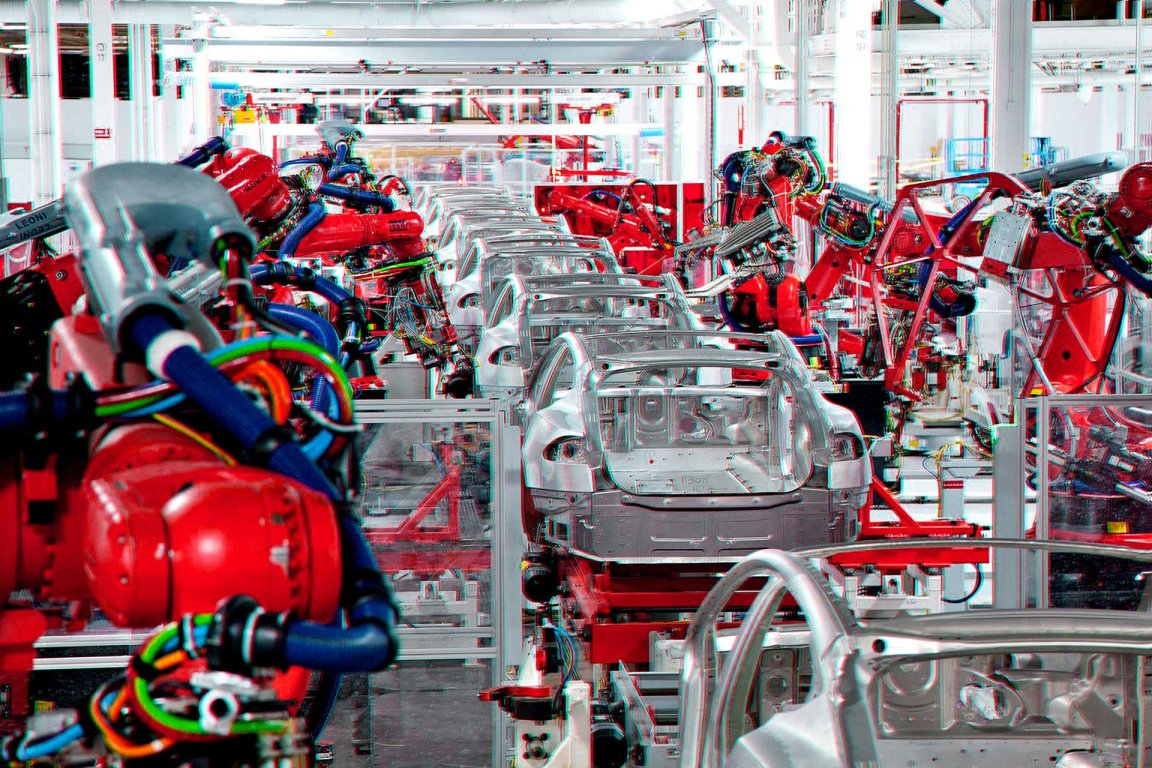
Oh boy, here we are again. Tesla is in the news, and not for happy fun reasons – like being the first sports car to become an interplanetary biohazard.
Here’s a short list of things that are probably keeping Elon Musk up at night:
- Tesla had to (yet again) stop production on its Model 3. This is the opposite of the original goal to increase the number of cars produced per week to 5,000 (it was just over 2,000 in the last week of March, the New York Times reports).
- Musk told CBS Good Morning that this stall was because of “excessive automation.” “Humans are underrated,” he confirmed on Twitter. (Luckily for Musk, the company’s stock hasn’t fallen this time, as it has with previous delays).
- A recent story published by investigative outlet Reveal uncovered numerous employee injuries on the factory floor — workers were reportedly “sliced by machinery, crushed by forklifts, burned in electrical explosions, and sprayed with molten metal” — that the company failed to report to the proper authorities.
- Some of these injuries might have happened specifically because Musk reportedly doesn’t like the color yellow – the color used in most warning signs.
- Tesla went into damage-control mode and put out a press release (title: “A Not So Revealing Story” — good one, guys) refuting the claims by calling Reveal‘s story “an ideologically motivated attack by an extremist organization working directly with union supporters to create a calculated disinformation campaign against Tesla.” Wow, that escalated quickly. And now the company’s getting flack for that, too.
- Given everything else going on, how in the hell is Musk supposed to make enough cars to feed the need in China?
Most of these issues will probably pass — after all, Musk has somehow gotten this far and still managed to get a bit of restful shut-eye. But that second one – the one about the gruesome workplace injuries – should maybe worry him a bit more than the others. The reason has a little something to do with the law.
As the Reveal story states:
But Logan’s inhalation injury, as it was diagnosed, never made it onto the official injury logs that state and federal law requires companies to keep. Neither did reports from other factory workers of sprains, strains and repetitive stress injuries from piecing together Tesla’s sleek cars.
And, later:
By law, if something at work contributed to an injury – even if work wasn’t the only cause – the injury must be counted.
If the story is correct, Tesla may have systematically underreported the number of workplace injuries, or avoided reporting them altogether by characterizing them as medical issues that have nothing to do with the job.
For the other California companies that have been penalized for failing to report workplace injuries, the consequence has usually been a fine of tens of thousands dollars (in one 2004 case, electric utility Southern California Edison was forced to return $35 million, but that seems to be an anomaly).
But underreporting workplace injuries seems to be just what American companies do these days. It’s not always on purpose either, though the incentives not to do so are obvious. So most companies don’t have any repercussions for underreporting.
Orly Lobel, a specialist in labor law and a professor at the University of San Diego, told Futurism via email:
I don’t really know the facts other than the two opposing accounts by the journal [Reveal] and Tesla – California law does require reporting of injuries and a violation may result in a fine, and possible Cal/OSHA investigation and further requirements to update safety practices/processes.
All of this doesn’t sound super unique though. I think these kind of violations of non-reporting are, unfortunately, quite common.
Since Tesla’s reported violations are so sensational and so damn public, it wouldn’t be surprising if there were an investigation. Maybe the prospect– paying a substantial fine when your company is already dangerously close to bankruptcy – might give Musk some fitful slumber, after all.